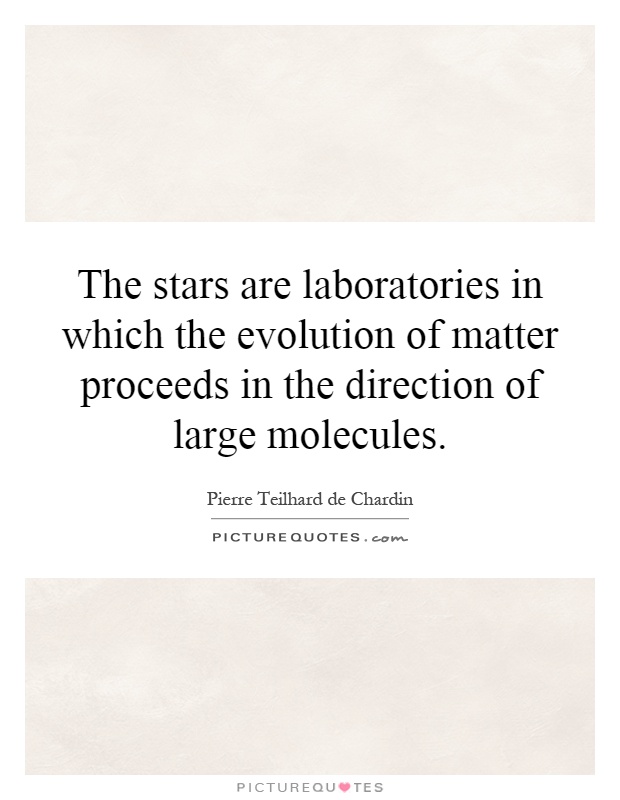The stars are laboratories in which the evolution of matter proceeds in the direction of large molecules

The stars are laboratories in which the evolution of matter proceeds in the direction of large molecules
Pierre Teilhard de Chardin, a French Jesuit priest, paleontologist, and philosopher, was a visionary thinker who sought to reconcile science and spirituality. One of his most famous quotes, "The stars are laboratories in which the evolution of matter proceeds in the direction of large molecules," encapsulates his belief in the interconnectedness of the universe and the evolution of matter towards greater complexity.Teilhard de Chardin was deeply influenced by the discoveries of modern science, particularly in the fields of paleontology and cosmology. He saw the universe as a dynamic and evolving system, where matter and energy are constantly transforming and evolving towards higher levels of complexity. In his view, the stars are not just distant celestial bodies, but active participants in the process of cosmic evolution.
According to Teilhard de Chardin, the stars are like giant furnaces where the elements are forged through nuclear fusion, creating the building blocks of life. These elements are then dispersed into space through supernova explosions, seeding the universe with the raw materials necessary for the formation of planets, stars, and ultimately, life itself. In this sense, the stars are not just passive observers of the universe, but active agents in the creation and evolution of matter.
Teilhard de Chardin believed that the evolution of matter is not a random or chaotic process, but rather a guided and purposeful one. He saw a directionality in the evolution of the universe, where matter is constantly moving towards greater complexity and organization. This process, which he called "complexification," is driven by the forces of attraction and integration, leading to the emergence of increasingly complex structures and systems.












 Friendship Quotes
Friendship Quotes Love Quotes
Love Quotes Life Quotes
Life Quotes Funny Quotes
Funny Quotes Motivational Quotes
Motivational Quotes Inspirational Quotes
Inspirational Quotes